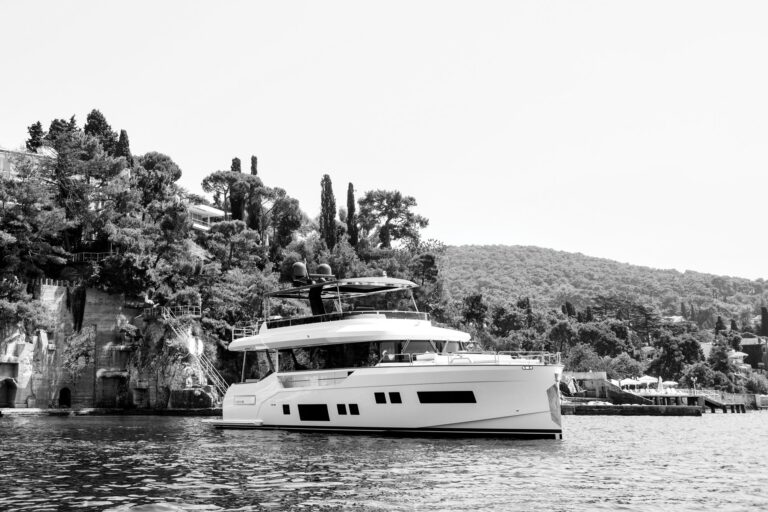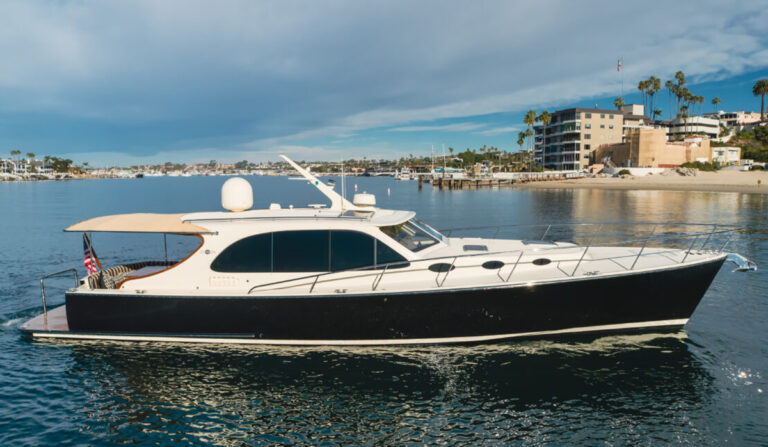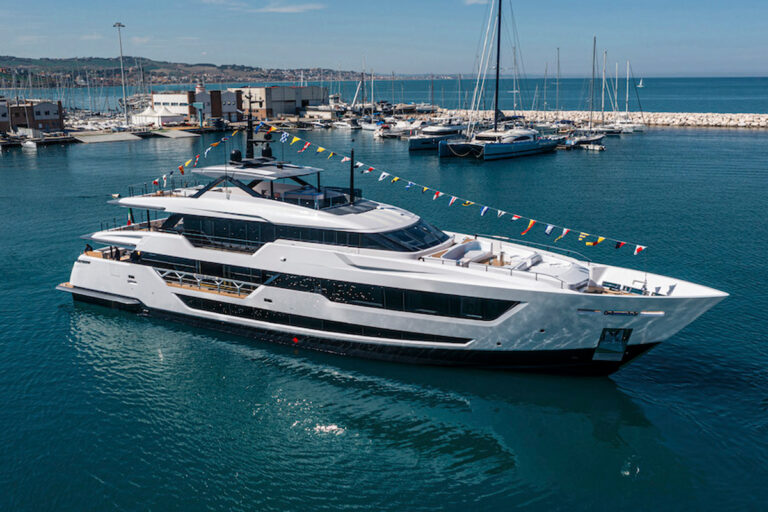Phones started ringing the night of September 11 at luxury yacht charter agencies around the world.
“Let’s wait and see about the Caribbean this year.”
“I’d like to push the trip back, maybe until after New Year’s.”
“It’s not too late to get back our deposit, is it?”
By the time the folks on the receiving end of those calls reached the Ft. Lauderdale International Boat Show in October, their shell shock had given way to broad thinking about exactly where the charter experience-and its seclusion, comfort and safety-should begin and end. As the general manager of one charter yacht fleet said at the time, “Anyone without his own plane isn’t calling. Yacht charter has always included guests who travel by private jet to meet the boat, but a good number of people still fly commercial, people who might start calling again if the charter experience began in the air instead of on the water. Private jet-yacht charter packages have been discussed before, but 9-11 pushed the idea to the fore, and fast.
Between October and the time of this writing in January, however, no yacht charter companies had come up with a bold new approach. As a charter client, your options are still flying your own jet, or a jet in which you have a fractional ownership share; asking your charter broker to set up private jet transportation at open-market prices; asking your broker if you may pay to use the yacht owner’s private jet; or flying on a commercial airline. Still, industry insiders are continuing to discuss new options. They want to prevent fears about flying from further affecting yacht charter, which has seen not only postponements and cancellations, but clients unwilling to meet charter boats anywhere but on American shores.
Several yacht management agencies had at least one round of talks with private jet companies. Some yachting insiders were more intrigued than others, but top brass from more than one agency told jittery yacht owners and captains that plans for package deals were “in the works”. Apparently, early discussions led to the same stumbling blocks they have met for years: expertise and financing.
Several companies have fleets of charter yachts and the expertise to manage them; several other companies have the same for private jets. No single company has both types of fleets, and none has shown an interest in making the investment to expand into a second area of primary business. “From the infrastructure, they are very different,” said Heinz Aebi, vice president of marketing for Jet Aviation, which offers its corporate motoryacht, the 160-foot Blue Shadow, for charter at $115,000 per week, plus expenses. “They have similarities in the audience, but only when it comes to the high, high, high end.” Partnerships are the next logical thought, particularly in today’s marketplace, where a yacht management agency could partner for fractional jet ownership. Such ownership shares have increased in the United States from fewer than 1,000 in the early 1990s to about 5,000 in 2001. The number was projected to climb to 10,000 by 2003 even before September 11.
Still, fractional ownership is costly. A typical low-end share runs about $700,000, which gives the buyer a five-year contract and 25 to 50 flying hours per year. Monthly fees on top of the initial purchase are at least $7,000, and buyers usually pay another $1,500 or so per hour of flight for fuel and other expenses.
Those numbers are intimidating to yacht charter agencies that want to make private jet-yacht charter packages accessible to people who don’t own their own planes. For the yacht agencies, the concept is about getting people to the boats who do not want to fly commercial and who will not or cannot purchase a fractional jet share themselves.
There is, however, a ray of hope. As the private jet marketplace expands, new ideas about just how big fractional shares need to be may offer yacht charter agencies a way to make package deals possible.
Manhattan-based Marquis Jet Partners is one company that recently began selling fractions of fractional shares. For example, Marquis will buy a typical five-year contract, then sublease 25 hours of flying time per year for one flat fee. CEO Alan Clingman said in December that he had received positive response from yacht charter agencies that want access to private jets but don’t want the expense and implications of owning a full fractional share.
“They love the idea, but they don’t want to be in the middle of it,” Clingman said. “What the yacht companies are looking for us to do is make an alliance for customers who, say, come down (to charter) a few times a year. The numbers, unlike with straight fractional ownership, are perhaps more palatable to yacht charter agencies the way Clingman presents them.”
Let’s say you need to get 12 people to your charter yacht in Sint Maarten, round-trip from Miami, during the busy Presidents’ Day week. You can fly first-class on American Airlines for just under $20,000, which includes the post-September-11 atmosphere at the airport; you can charter a Gulfstream IV on the open market for about $31,000; or you can use three hours of Marquis’ 25-hour annual share for about $39,000. Obviously, if a yacht charter company made an alliance for a Marquis-style share to create package deals, that $39,000 would have a good chance of matching or beating the open-market $31,000 rate.
That would make the price just $11,000 more than flying commercial-less than $1,000 more for each of the 12 yacht charter guests. That number may be low enough to pique the interest of yacht charter customers who have stopped calling, especially if a charter broker could offer the service as a package deal with the boat.
That’s assuming, of course, that yacht charter companies decide to make the offer. Talks are continuing in conference rooms, but those “in the works deals don’t seem any closer to arriving.
There is also a question of what consumer demand will be if and when package deals become reality. Mark Elliott of International Yacht Collection’s Sint Maarten office said the thought process is important for the yacht charter industry’s future, but the concept hasn’t yet translated into increased requests from clients.
“But I say ‘yet’ because it hasn’t been advertised to the public,” Elliott said. “It’s only been discussed within the broker community.”









